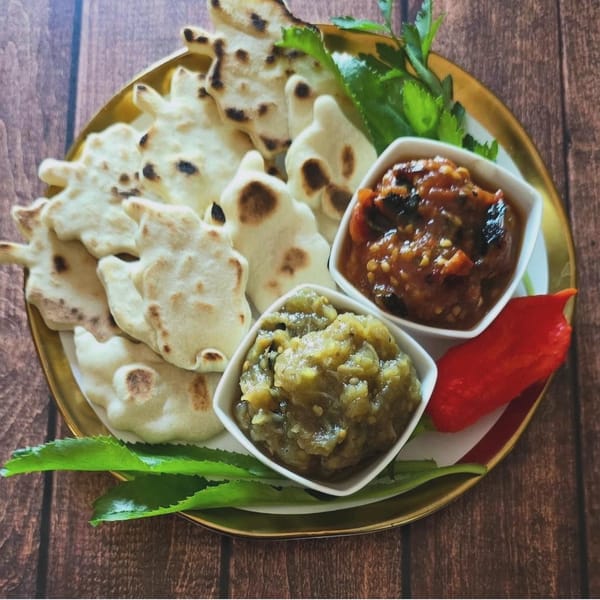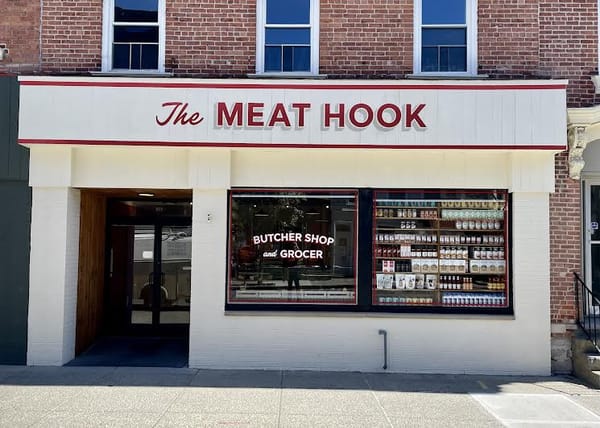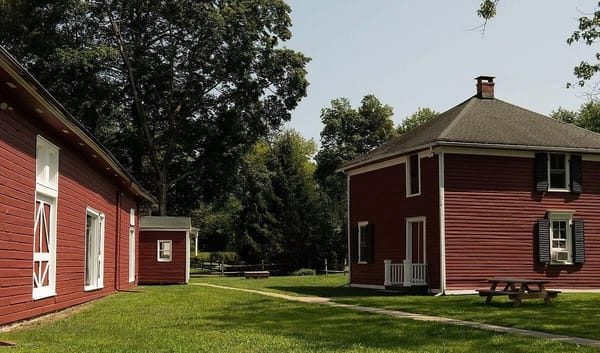
Rural Intelligence bloggers Peter Davies and Mark Scherzer are the owners of Turkana Farms in Germantown, NY. This week Peter writes: As you may have already sensed, I am at an age when everything has a history. So when I think of tomatoes, my mind goes back to my first memory of them. And strangely enough that is only back to age eight. Not so strange, on second thought, since my first seven years were spent in the austerity of wartime Britain. With Nazi U boats blocking the sea lanes, there were virtually no imports from other climates, and Britain’s is not that well suited to producing memorable tomatoes {pronounced “toe mah toes”). If I had any during my early years, they were probably barely red, tasteless, hot-house tomatoes, and, therefore, forgettable. With its hot summers and deep, rich soil, Northern Illinois, where we joined my American stepfather’s family after the war, is, of course, ideal tomato country, and it is there that my memory of tomatoes (pronounced “toe may toes”) begins. And my passion for them, as well (though, I might add, not as disturbingly intense as Mark’s passion for his Illini blackberries). Not only was the flavor of these tomatoes a revelation but so were the many uses to which they could be put. Why had we, while in Cardiff, I wondered, never thought of spaghetti sauce? Or tomato plates garnished with basil? Or stuffed tomatoes?

But my experience was not just gustatory for I was soon put to work endlessly weeding the tomato plants in the huge vegetable garden that served my new family. Once my parents determined that I liked movies too much, it was Saturday afternoons in the tomato patch for me. And, worse, during canning time, I was given the unenviable job of dipping the tomatoes into scalding water to remove the skins. I remember spending one long summer afternoon in the cellar with Minna, my stepfather’s mother, putting up 85 quart mason jars of tomatoes and as many of green beans. I would like to say this is a fond memory but, sad to say, it is not. And to cap it off, the jars apparently were not properly sterilized and every jar spoiled. I think it was Minna's last attempt at canning. A more pleasant memory is of being paid a nickel for every huge green caterpillar I found on the tomato plants. At any rate, during these years, I moved from total unawareness of the tomato ( pronounced “toe mah toe”) to a deep familiarity with the tomato (pronounced “toe may toe”). After leaving Minna’s extended (and very German) household for our own, we were for years unable to have our own vegetable garden. And so, since farmer’s markets had not yet become common and small grocers were disappearing, we were dependent on that new, all-engulfing institution, the supermarket, which more and more meant indifferent produce from California. Consequently, my enthusiasm for tomatoes gradually faded.

Then, at the beginning of my freshman year in high school, I came across a real estate advertisement for the remains of an old farm and somehow I talked my parents into going for it. It was not until then that we returned to having a major vegetable garden of our own. And, once again, we had real tomatoes. And, once again, I was back in the tomato patch weeding. But four years later, I was off to college, where I endured the blandness and banality of dormitory food, including its pale tomatoes. In my early twenties I made the life transforming move to Izmir, Turkey, where I experienced my tomato passion version of the “road to Damascus”. In Turkey what I had known as “tomato” became “domates” (pronounced “doe mah tess”). My top-floor apartment looked down on the old camel caravan route that began just west of us on the Aegean and stretched on to China. With the paving of the road and increasing motorized traffic, the camel caravans were, by my time, restricted to passing through in the dark of night. Only when awakened by the tolling of the massive bronze bell on the lead camel was I was aware of their passage. But on Wednesdays and Sundays, I could look down early mornings on a long procession of peasant wagons, carts, and donkeys loaded with farm produce, snaking up the steep hill below my window, heading for the city market places. It was there I bought my first “domates” directly from the growers, shy peasant ladies in colorful baggy pants and white head scarves. Their “domates” were truly the tastiest, most succulent tomatoes I have ever eaten. Whether it is the soil, the weather, or a combination of the two it is hard to say, but the long fjord-like valleys stretching from the Aegean into Anatolia produce vegetables and fruits of an exceptional quality.

But on my return to the U.S. and graduate studies in New Haven, Connecticut it was good bye “domates” and hello tomatoes (pronounced “toe may toes”). On my return trips to Turkey since then, I always looked forward to “domates”. But all good things apparently come to an end. With the rise of greenhouse agriculture on the south coast of Turkey, which now serves for today’s Turks a function similar to California’s for us, the “domates” have become increasingly like our tomatoes. That is they are pale colored, thick skinned and flavorless. As a result, Turks now look forward to summer when the Aegean valleys again produce “domates” in the same way we look forward to our own home-grown or farm-stand tomatoes.

My quest for the real tomato still goes on as at Turkana Farms we explore the gustatory delights of Brandywine, Principe Borghese, Black Krim, Rose de Berne, and Amish Paste, wonderful heirloom tomatoes. At our house these days, it’s fried tomatoes at breakfast, BLT s for lunch, and at dinner gazpacho, pasta sauce, tomato plates, stuffed tomatoes, and fried green tomatoes. And I am well on the way, with around 25 pounds of frozen tomato sauce so far, to filling our freezer with the sixty pounds of frozen tomatoes we need to get us through the winter, spring, and early summer, when our own tomatoes once more ripen on the vine. At present this seems to be a tomato dream that will never end. However, with the memory of last year’s potato/tomato blight, which resulted in a virtually tomato-less summer, I am aware that even this dream could vanish too. —Peter DaviesFor the complete archive of past AgriCulture blogs, click here.








